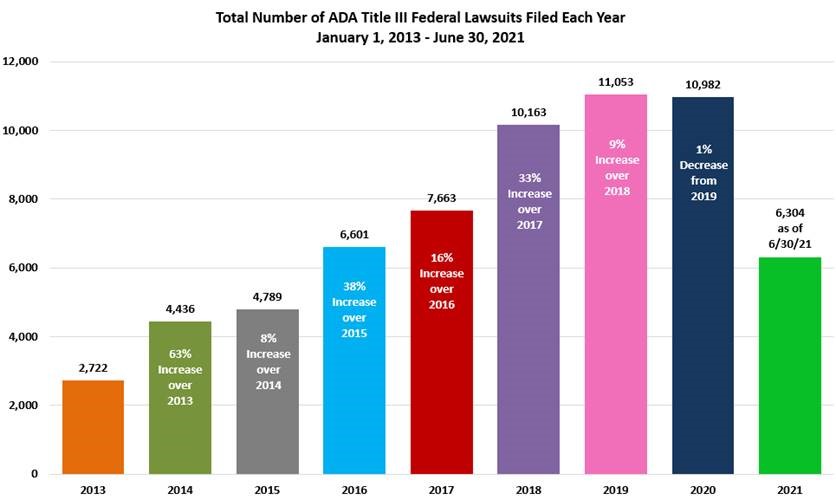
The Americans with Disabilities Act (ADA) is a comprehensive law that addresses many different features of accessibility for individuals with disabilities. "Title III" refers to the component of the ADA that influences how businesses serve consumers; therefore, you'll hear accessibility legislation referred to as "ADA Title III."
Title III of the Americans with Disabilities Act (ADA) includes "public accommodations," such as schools and transportation. In addition, businesses, restaurants, hotels, theaters, physicians' offices, pharmacies, retail stores, museums, libraries, parks, childcare facilities, and nearly every other place of business are considered "public accommodations" under the law.
To read more about ADA’s each Title Click here.

The significance of the ADA to web accessibility isn't merely theoretical. The frequency of ADA title III-related lawsuits has increased dramatically since 2017. 816 ADA Title III lawsuits were filed in 2017, but over 2,200 cases were filed in 2018. That's an increase of 180 percent, and it's just the beginning. It does not indicate the rising number of ADA legal complaints and lawyers' demand letters filed against firms with non-accessible websites in recent years since they are never made public.
The current legal climate in the United States makes it highly favorable for people with disabilities to sue businesses under ADA Title III. Unlike many other areas of the law, the ADA explicitly states that the defendant must pay the plaintiff's legal expenses; thus, a disabled person has nothing to lose by initiating a complaint.
The plaintiff prevails in the great majority of ADA Title III actions. The Department of Justice (DOJ) has apparent that ADA compliance includes web accessibility through rulings, settlement agreements, and an official letter to Congress.
The law doesn't specify what you need to do to make your website accessible makes ADA title III compliance so challenging. "In the absence of particular technological standards for websites adopted through rulemaking, public accommodations have flexibility in how to comply with the ADA's broad criteria of nondiscrimination and effective communication, " Assistant Attorney General Boyd wrote to Congress. As a result, a violation with a voluntary technical requirement for online accessibility does not always imply non-compliance with the Americans with Disabilities Act."